
Kuantan: The Gem of the East Coast
Kuantan, the capital of Pahang, is a captivating city located on the east coast of Malaysia. Known for its beautiful beaches, vibrant culture, and rich heritage, Kuantan offers a unique blend of natural beauty and modern amenities. The city is a haven for beach lovers, with stunning spots like Teluk Cempedak and Cherating Beach offering pristine sands and clear waters. One of the highlights of Kuantan is its diverse culinary scene. From delicious street food to high-end dining, the city caters to all taste buds. Don't miss out on trying the local specialty, 'ikan bakar' (grilled fish), at the seaside stalls. Besides food, Kuantan is also famous for its handicrafts, especially batik, which visitors can buy as souvenirs or gifts. For those interested in history and culture, Kuantan has several attractions that should not be missed. The Sultan Ahmad Shah State Mosque is a magnificent example of Islamic architecture, while the nearby Sungai Lembing town offers a glimpse into Malaysia's tin mining past. Nature enthusiasts will enjoy exploring the lush greenery of the Bukit Gambang Resort City and the scenic Panching Cave, home to a large reclining Buddha statue.
Local tips in Kuantan
- Visit Teluk Cempedak Beach early in the morning to avoid the crowds and enjoy a peaceful walk along the shore.
- Try the local 'ikan bakar' (grilled fish) at the food stalls near the beach for an authentic dining experience.
- Purchase batik and local handicrafts from the Central Market for unique souvenirs.
- Explore Sungai Lembing town to learn about Malaysia's tin mining history and visit the museum for more insights.
- Rent a car for easier access to attractions outside the city center, such as Cherating Beach and Panching Cave.
Kuantan: The Gem of the East Coast
Kuantan, the capital of Pahang, is a captivating city located on the east coast of Malaysia. Known for its beautiful beaches, vibrant culture, and rich heritage, Kuantan offers a unique blend of natural beauty and modern amenities. The city is a haven for beach lovers, with stunning spots like Teluk Cempedak and Cherating Beach offering pristine sands and clear waters. One of the highlights of Kuantan is its diverse culinary scene. From delicious street food to high-end dining, the city caters to all taste buds. Don't miss out on trying the local specialty, 'ikan bakar' (grilled fish), at the seaside stalls. Besides food, Kuantan is also famous for its handicrafts, especially batik, which visitors can buy as souvenirs or gifts. For those interested in history and culture, Kuantan has several attractions that should not be missed. The Sultan Ahmad Shah State Mosque is a magnificent example of Islamic architecture, while the nearby Sungai Lembing town offers a glimpse into Malaysia's tin mining past. Nature enthusiasts will enjoy exploring the lush greenery of the Bukit Gambang Resort City and the scenic Panching Cave, home to a large reclining Buddha statue.
When is the best time to go to Kuantan?
Iconic landmarks you can’t miss
Swiss-Garden Beach Resort Kuantan
Discover paradise at Swiss-Garden Beach Resort Kuantan, where luxury meets nature on the beautiful Balok Beach.
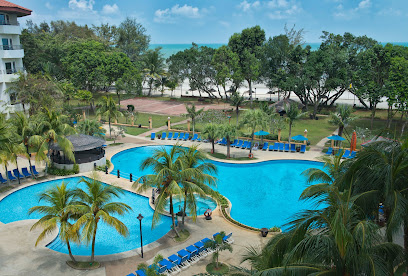
Taman Gelora Kuantan
Explore Taman Gelora Kuantan, a tranquil urban park where nature meets leisure in the heart of Kuantan.
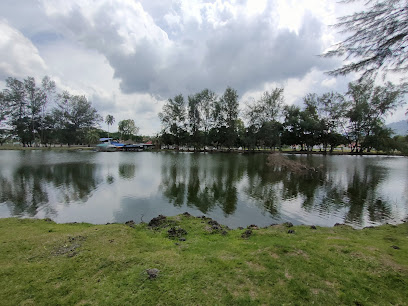
East Coast Mall
Explore the East Coast Mall in Kuantan for a unique shopping experience, combining local culture with modern retail, dining, and entertainment options.
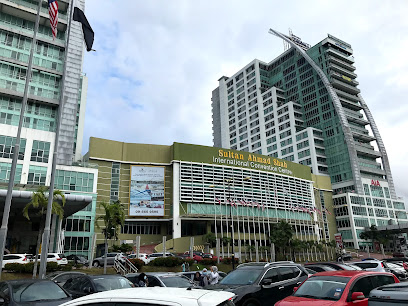
Masjid Negeri Pahang (Sultan Ahmad 1) Kuantan
Explore the architectural beauty and spiritual serenity of Masjid Negeri Pahang, a landmark mosque in Kuantan, Malaysia.
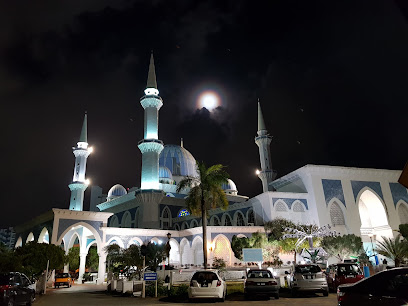
Dataran Teluk Cempedak Kuantan
Discover the natural beauty and vibrant culture of Dataran Teluk Cempedak, a stunning beach destination in Kuantan, Pahang, Malaysia.
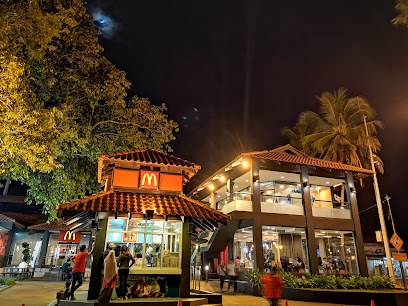
Menara Kuantan 188
Discover breathtaking views and cultural insights at Menara Kuantan 188, the iconic observation tower in Pahang, Malaysia.
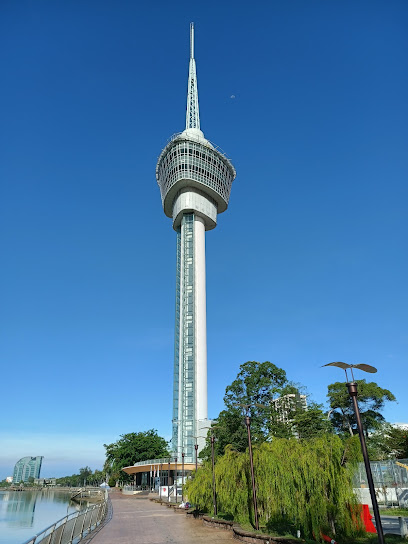
Pantai Batu Hitam
Explore Pantai Batu Hitam, a unique black stone beach in Kuantan, offering stunning views, local cuisine, and a serene escape by the South China Sea.
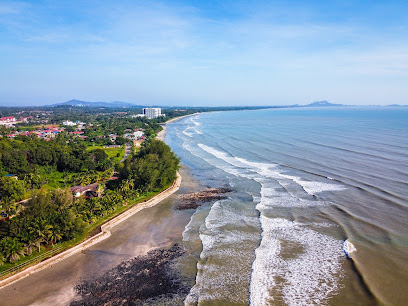
Zoo Teruntum
Explore the enchanting Zoo Teruntum in Kuantan, Pahang, where wildlife encounters and family fun come together for an unforgettable experience.
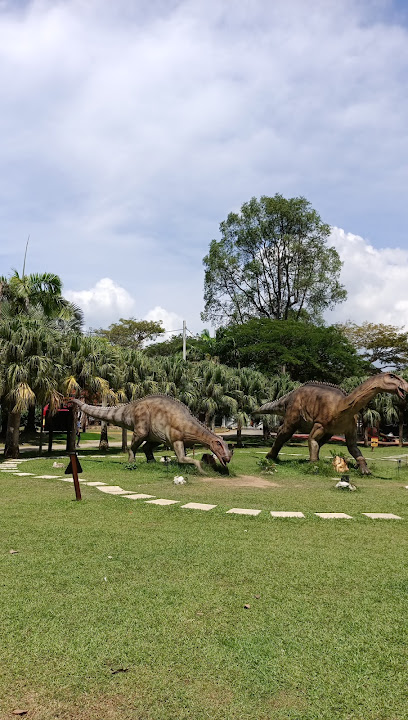
Esplanade Kuantan
Discover the serene beauty and cultural charm of Esplanade Kuantan, a must-visit park for tourists seeking relaxation and vibrant local culture.
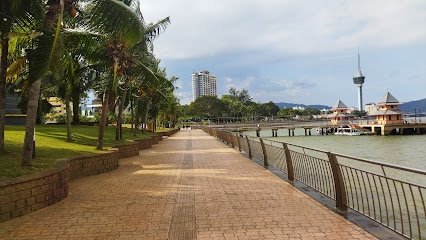
Cendol Air Putih
Discover the authentic flavors of Malaysia at Cendol Air Putih, your go-to dessert shop for the best cendol in Kuantan.
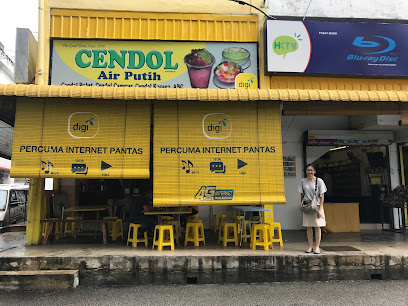
Lila Wadi Restaurant
Experience the best of Malaysian and international flavors at Lila Wadi Restaurant, a fusion dining haven in Kuantan.
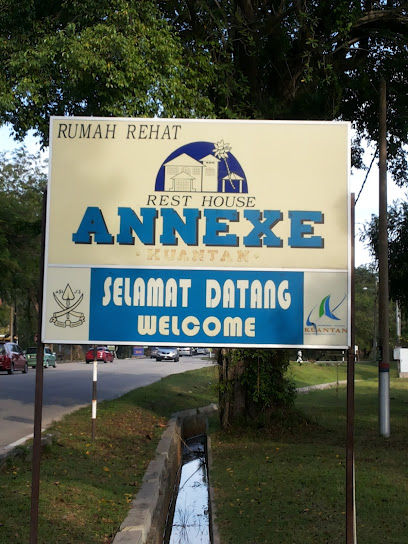
Taman Bandar Kuantan
Explore the serene beauty and recreational charm of Taman Bandar Kuantan, a peaceful park experience in the heart of Kuantan, Pahang.
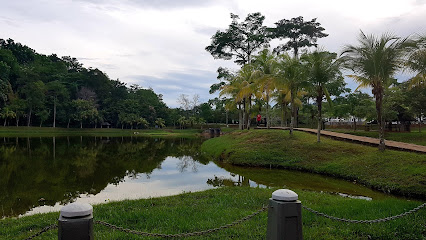
Sungai Pandan Waterfall
Discover the enchanting Sungai Pandan Waterfall in Pahang, Malaysia - a stunning natural preserve ideal for hiking, picnicking, and reconnecting with nature.
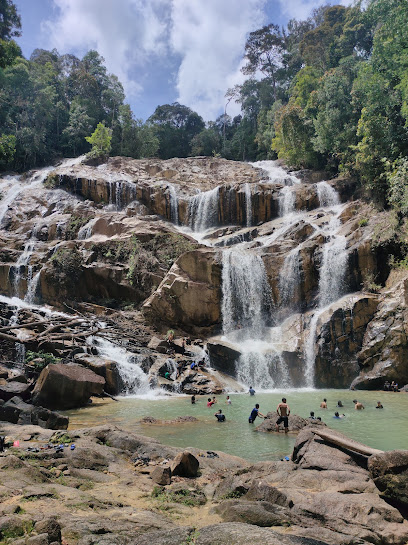
Teluk Cempedak
Experience the natural beauty of Teluk Cempedak Beach, where azure waters and golden sands offer a perfect getaway in Pahang, Malaysia.
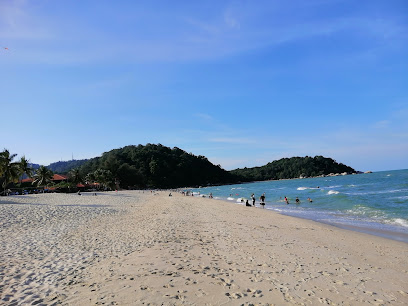
Restoran Hoi Yin
Discover authentic Chinese noodles and breakfast delights at Restoran Hoi Yin, a local favorite near Teluk Cempedak in Kuantan.
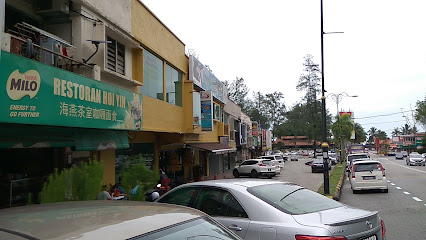
Unmissable attractions to see
Club Med Cherating - Malaysia
Discover the ultimate escape at Club Med Cherating, where stunning beaches meet luxury accommodations and endless activities for all ages.
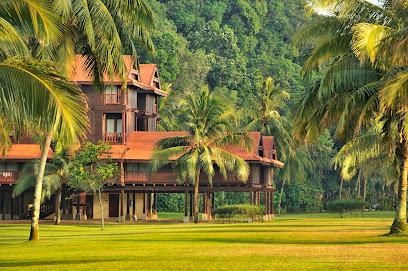
Taman Gelora Kuantan
Experience the tranquility of Taman Gelora Kuantan, a beautiful park perfect for relaxation, wildlife observation, and family fun in the heart of Kuantan.
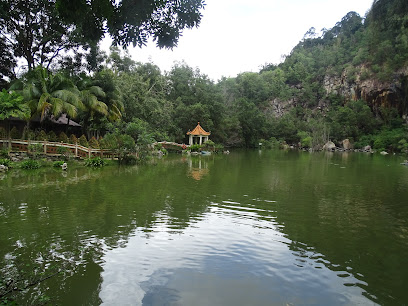
Masjid Negeri Pahang (Sultan Ahmad 1) Kuantan
Explore the architectural beauty and cultural significance of Masjid Negeri Pahang, a must-visit mosque in Kuantan, Malaysia.
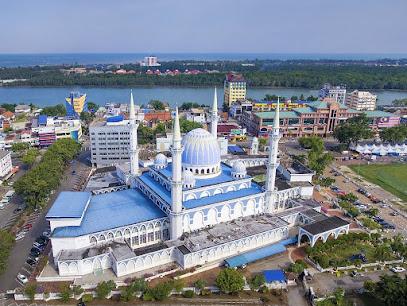
Bukit Gambang Water Park
Discover endless water fun and relaxation at Bukit Gambang Water Park, a premier theme park in Pahang, Malaysia, perfect for families and adventure seekers.
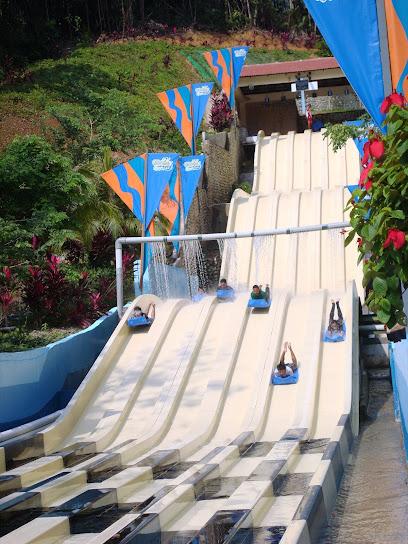
Padang MBK 2
Experience the tranquil beauty of Padang MBK 2, a lush park in Kuantan perfect for relaxation and cultural exploration.
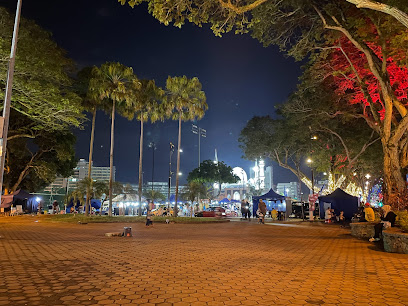
Kuantan 188
Discover the vibrant culture, shopping, and culinary delights at Kuantan 188, a premier tourist attraction in Pahang, Malaysia.
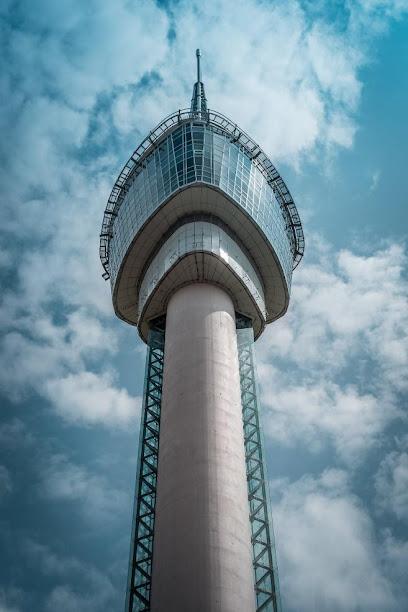
Pantai Batu Hitam
Discover the stunning Pantai Batu Hitam in Kuantan, a perfect blend of relaxation, adventure, and local flavors along the South China Sea.
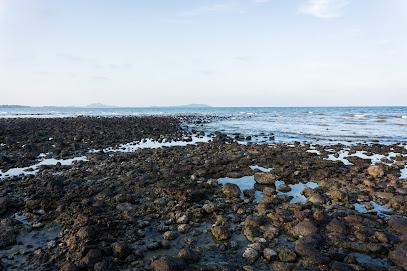
Pantai Batu Hitam
Explore Pantai Batu Hitam, a stunning beach in Kuantan known for its unique black stones, scenic beauty, and delightful local cuisine.
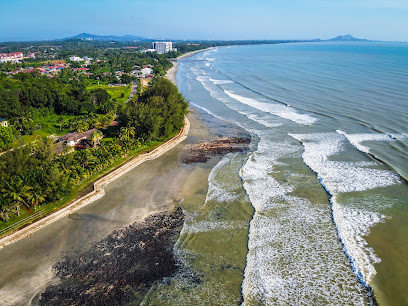
Zoo Teruntum
Explore the enchanting Zoo Teruntum in Kuantan, where wildlife encounters and family fun await in a beautiful setting.
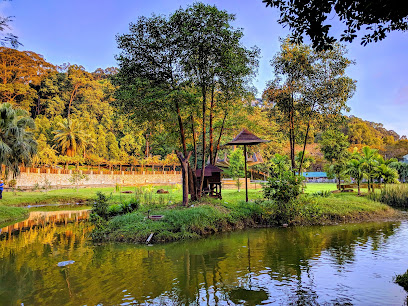
Esplanade Kuantan
Discover the serene beauty of Esplanade Kuantan, a perfect blend of nature and relaxation along the picturesque riverfront.
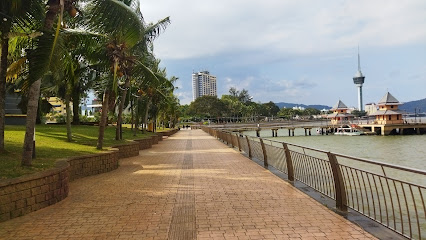
Sungai Pandan Waterfall
Experience the tranquility of Sungai Pandan Waterfall, a nature preserve in Pahang offering stunning views, hiking trails, and family-friendly picnic areas.
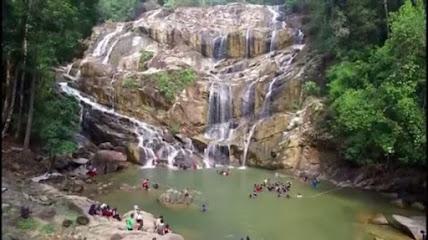
Taman Bandar Kuantan
Explore Taman Bandar Kuantan, a lush park in Kuantan, Pahang, offering playgrounds, boat rides, and serene landscapes perfect for relaxation.
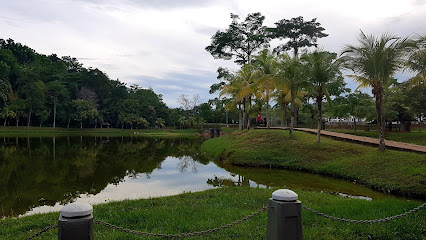
Muzium Sungai Lembing
Explore the captivating history of tin mining at Muzium Sungai Lembing, a local museum offering engaging exhibits and rich cultural insights.
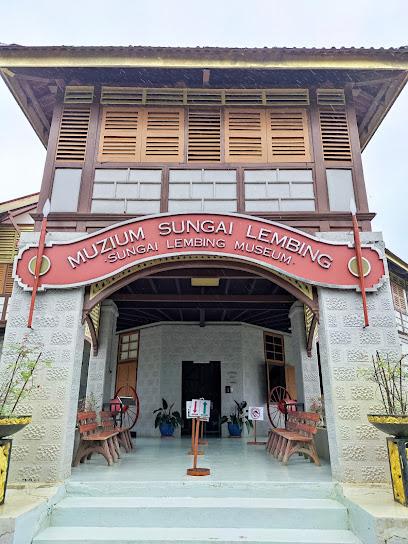
Teluk Cempedak
Discover the serene beauty of Teluk Cempedak, a stunning beach in Pahang, Malaysia, perfect for relaxation, adventure, and unforgettable memories.
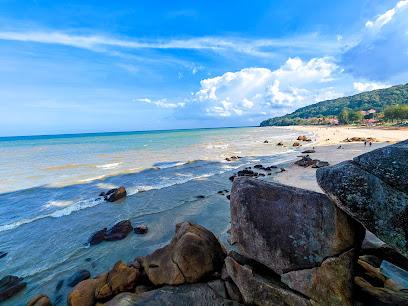
Natural Batik Village
Explore the vibrant world of batik at Natural Batik Village in Balok, Pahang, where tradition meets artistry in a picturesque setting.
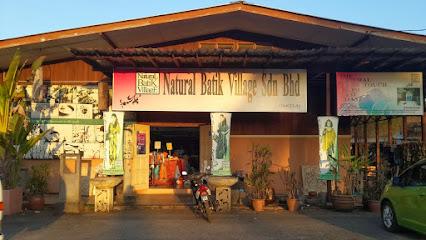
Essential places to dine
Restoran Ana Ikan Bakar Petai
Experience authentic Malaysian seafood at Restoran Ana Ikan Bakar Petai in Kuantan - where every meal tells a story.
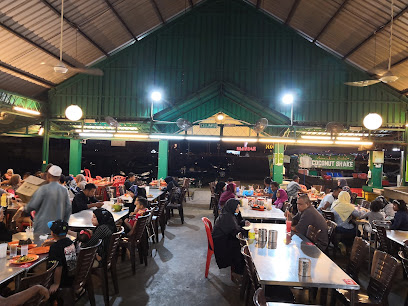
Jaman Tory Resepi
Discover authentic Malaysian cuisine at Jaman Tory Resepi in Kuantan - where every dish tells a story of flavor.
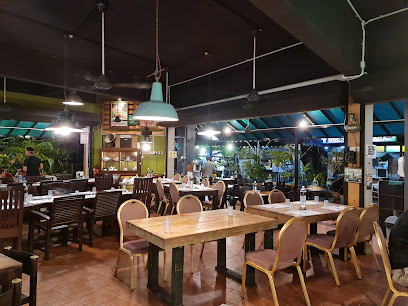
Restoran Sate Zul
Discover authentic Malaysian flavors at Restoran Sate Zul - your destination for delicious satay and traditional dishes in Kuantan.
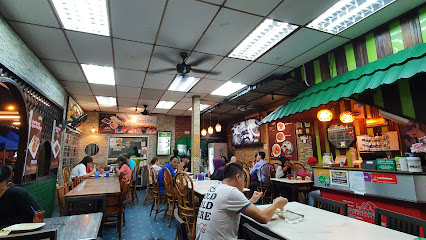
Restoran Sara Thai Kitchen (Jalan Gambut Branch)
Experience authentic Thai cuisine at Restoran Sara Thai Kitchen in Kuantan - where every dish tells a story.
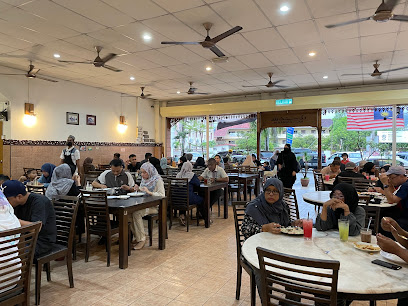
Alor Akar Seafood Restaurant
Experience exquisite seafood at Alor Akar Seafood Restaurant in Kuantan, where every dish tells a story of tradition and flavor.
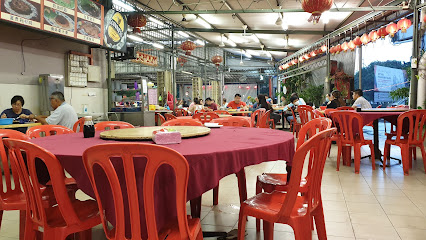
Kimstone Food Court & Hall
Experience the vibrant flavors of Malaysia at Kimstone Food Court & Hall, your go-to destination for halal cuisine and memorable events.
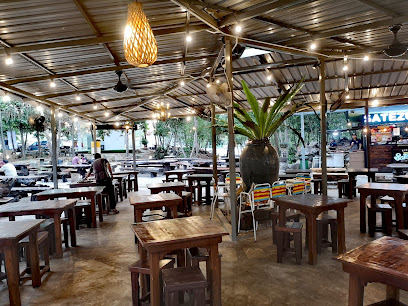
Cendol Air Putih
Experience the authentic taste of Malaysia at Cendol Air Putih - a beloved destination for traditional cendol and desserts in Kuantan.
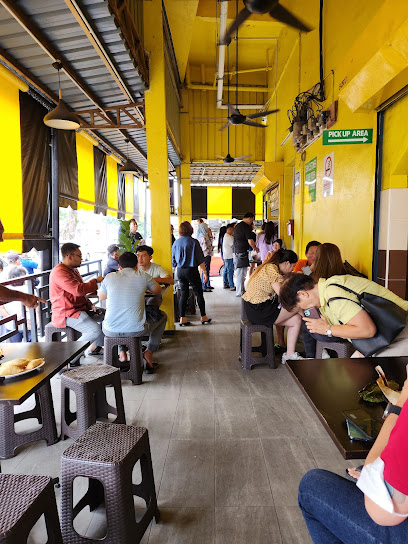
Lila Wadi Restaurant
Discover the vibrant flavors of fusion cuisine at Lila Wadi Restaurant in Taman Kerjasama, Kuantan.
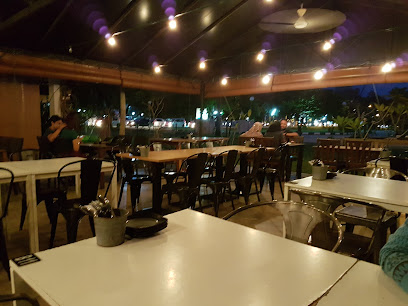
The Blue Plates
Experience delightful local and international cuisines at The Blue Plates in Kuantan - a must-visit dining destination for all food lovers.
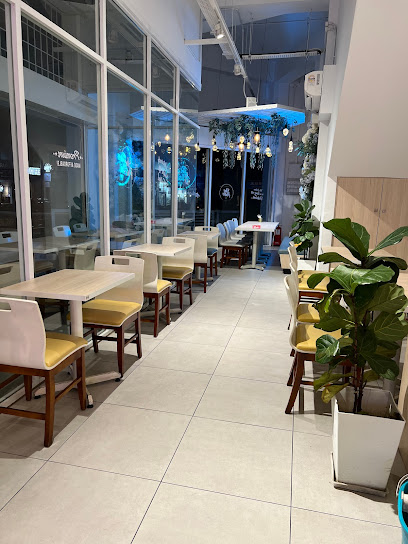
Mohd Chan Restaurant @ Kuantan
Discover the authentic taste of Malaysia at Mohd Chan Restaurant in Kuantan—where every dish is Halal and bursting with flavor.
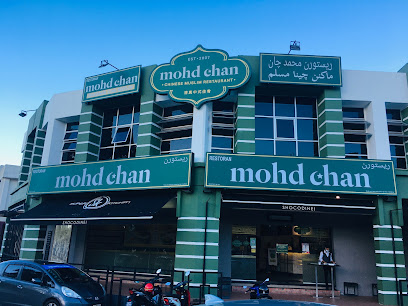
Puteh Beach Bar
Experience paradise at Puteh Beach Bar - indulge in exquisite cuisine and craft cocktails while soaking up stunning seaside views.
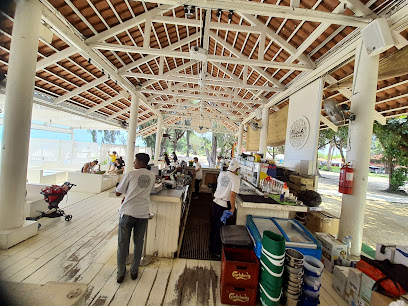
Lepak Luu Cafe
Discover the flavors of Malaysia at Lepak Luu Cafe in Kuantan - where every meal tells a story.
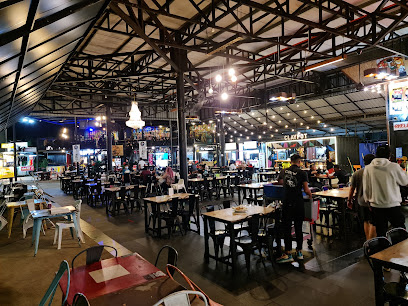
Rimba by Loft
Savor exquisite Western cuisine at Rimba by Loft in Kuantan—where delicious flavors meet inviting ambiance.
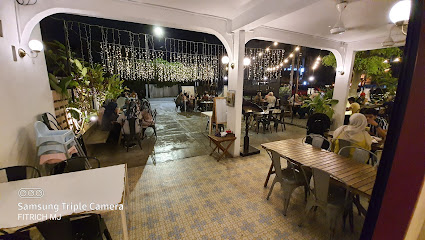
Pak Su Seafood Restaurant
Experience authentic Chinese cuisine at Pak Su Seafood Restaurant, where fresh seafood meets traditional flavors in Kuantan's vibrant culinary scene.
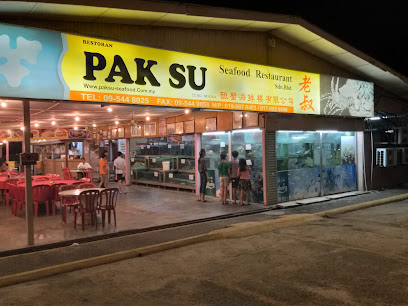
Dallah Restaurant
Experience authentic Middle Eastern flavors at Dallah Restaurant in Kuantan—where every dish tells a story.
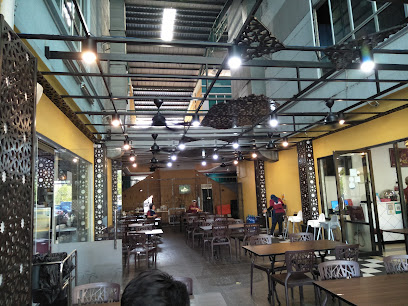
Markets, malls and hidden boutiques
Kuantan City Mall
Discover the vibrant shopping and dining experiences at Kuantan City Mall, a must-visit destination in Kuantan, Malaysia.
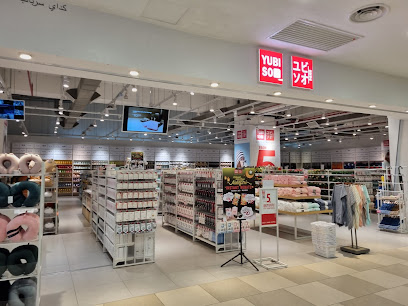
East Coast Mall
Discover East Coast Mall, where shopping meets entertainment in the heart of Kuantan, offering a delightful experience for every visitor.
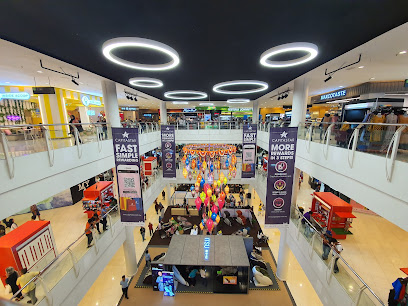
Kuantan Parade
Explore the vibrant shopping scene and indulge in delicious local cuisine at Kuantan Parade, a must-visit shopping mall in Pahang.
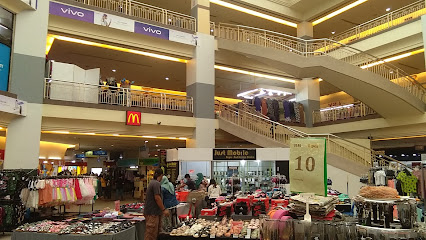
Berjaya Megamall Kuantan
Discover the ultimate shopping and entertainment experience at Berjaya Megamall Kuantan, where retail therapy meets local culture.
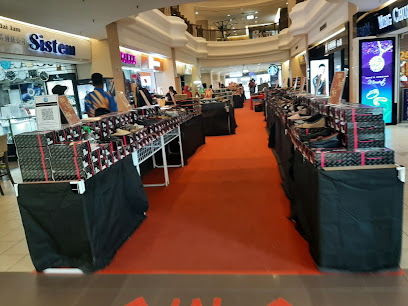
Jaya Grocer, Kuantan City Mall
Explore Jaya Grocer in Kuantan City Mall for a diverse selection of local and international groceries, perfect for tourists seeking a taste of Malaysia.
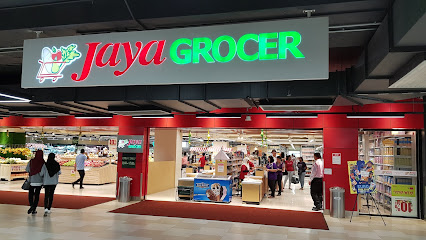
Mothers First Choice Baby Shop Kuantan
Experience a delightful shopping trip at Mothers First Choice Baby Shop in Kuantan, where quality meets care for your little ones.
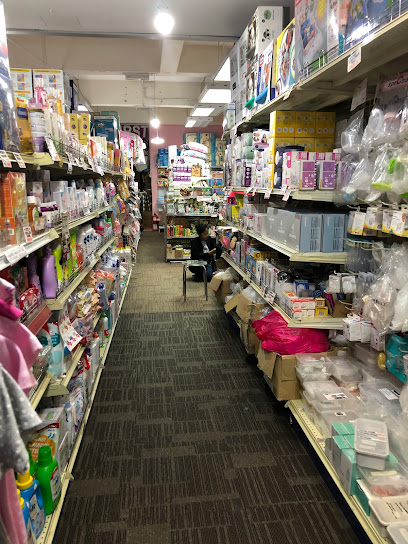
Gio Mall (Fabrics & Clothing | Kuantan)
Explore Gio Mall in Kuantan for a vibrant mix of fabrics and clothing, showcasing local craftsmanship and fashion trends.
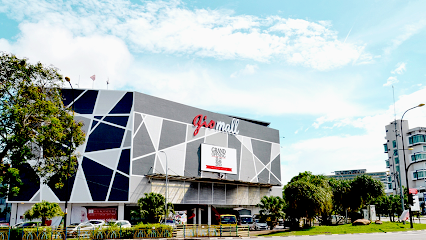
Memoire Gift & Souvenir House
Explore Memoire Gift & Souvenir House in Kuantan for authentic Malaysian crafts, thoughtful gifts, and personalized mementos to cherish your travels.
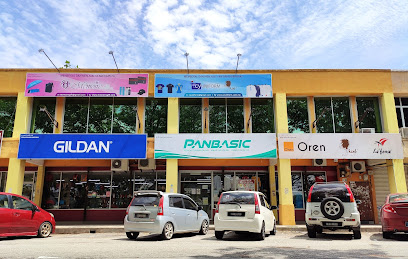
The Store
Explore local flavors and everyday essentials at The Store, a premier supermarket in Kuantan, Malaysia, perfect for tourists and locals alike.
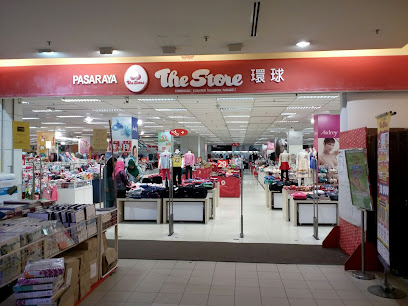
BYQISS BY BAWAL EXCLUSIVE KUANTAN
Experience the vibrant fashion scene at BYQISS BY BAWAL in Kuantan, where local culture meets contemporary style.
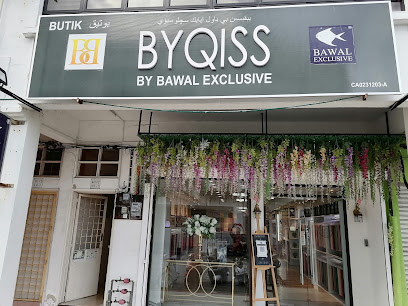
Manjaku Baby Mall Kuantan
Discover the ultimate shopping experience for parents at Manjaku Baby Mall Kuantan, where quality baby products meet exceptional service.
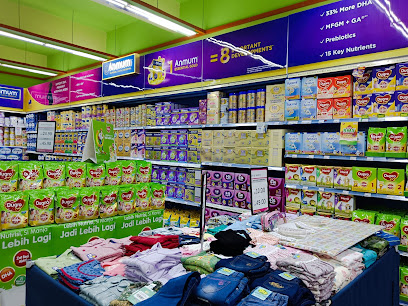
Supergift
Explore Supergift in Kuantan for unique gifts and corporate treasures that capture the essence of Malaysian culture and creativity.
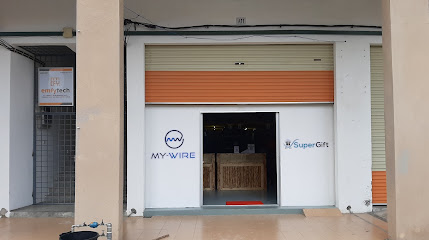
BFMUMMY - Barangan Bayi & Butik Tudung Wanita & Scarves & Barangan Ibu Pantang & Penyusuan Bayi
Discover BFMUMMY in Kuantan: Your one-stop boutique for stylish baby clothing and essential items for new parents.
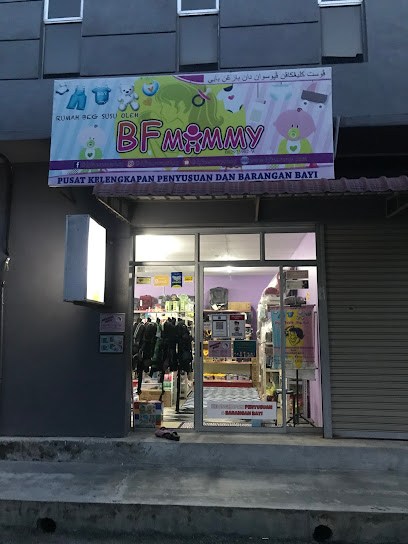
Giftory The Gift Shop
Explore Giftory The Gift Shop in Kuantan for unique gifts and local treasures that capture the spirit of Malaysia's rich culture.
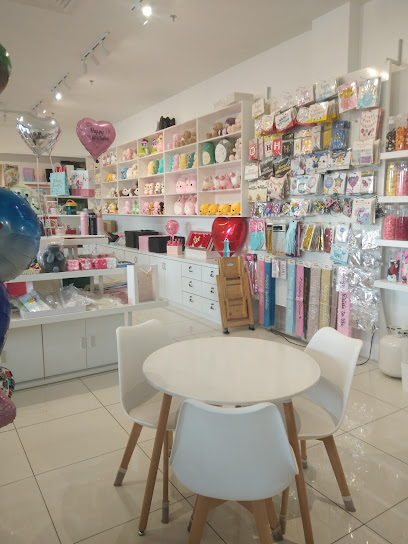
Original Classic @ Kuantan City Mall
Shop the latest trends in athletic apparel at Original Classic in Kuantan City Mall, where quality meets style for every fitness enthusiast.
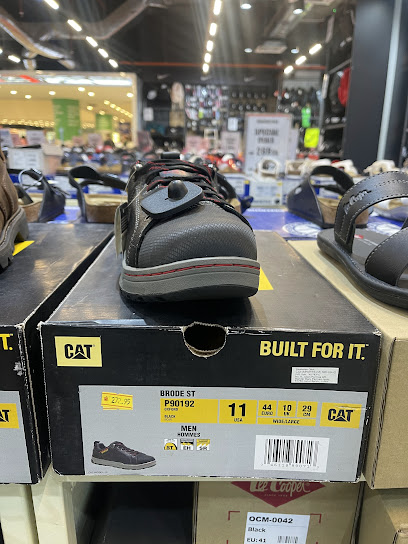
Essential bars & hidden hideouts
Puteh Beach Bar
Experience the best of beachside dining and vibrant nightlife at Puteh Beach Bar in Kuantan, where craft cocktails meet stunning sunset views.
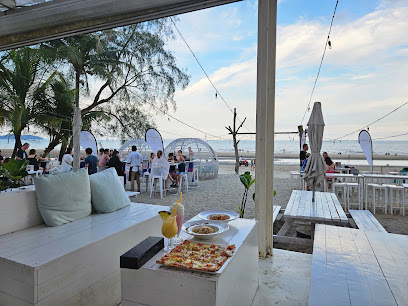
The 8th Bar
Experience the perfect blend of fine dining and exquisite wines at The 8th Bar in Kuantan, Pahang - an unforgettable culinary journey awaits.
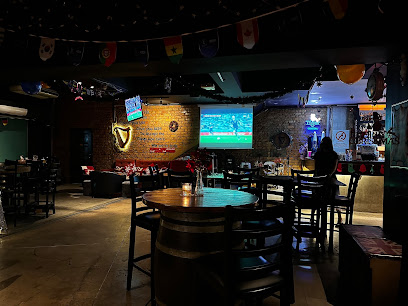
Black Pearl
Discover the lively ambiance of Black Pearl, a premier bar and grill in Kuantan, serving exquisite cocktails and delicious Western cuisine.
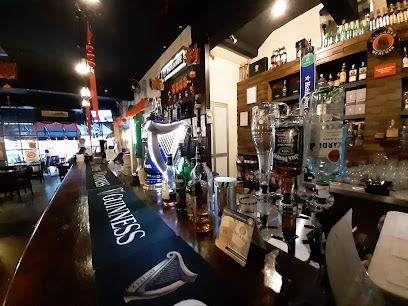
Waves Bistro
Discover the serene ambiance and local flavors at Waves Bistro, Kuantan's ultimate retreat for food and drink lovers.
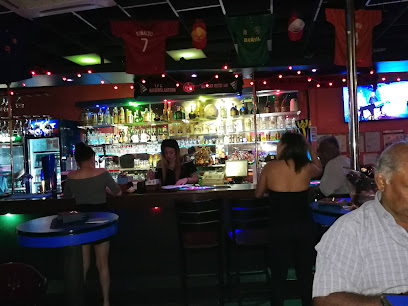
Sampan Bar
Enjoy breathtaking views and refreshing drinks at Sampan Bar, a tranquil beachside retreat in Kuantan's Hyatt Regency Resort.
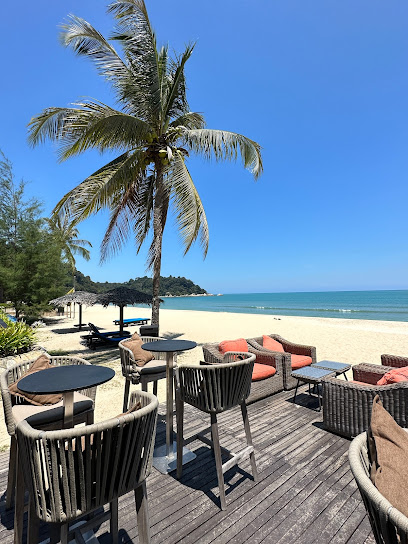
The Bluesky Coffee & Bar
Discover tranquility at The Bluesky Coffee & Bar, Kuantan's premier destination for stunning views, delightful drinks, and an inviting atmosphere.
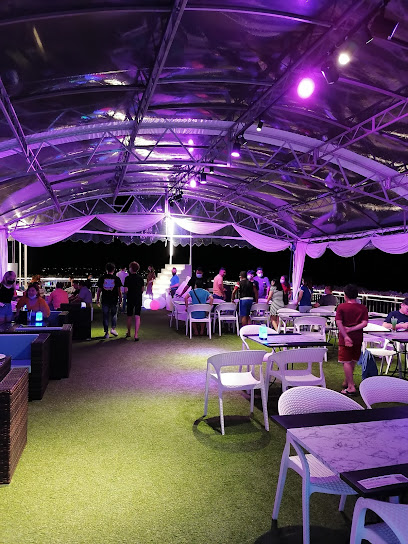
Chukka
Discover Chukka, the lively bar at Hyatt Regency Kuantan Resort, perfect for drinks, music, and relaxation in the heart of Teluk Cempedak.
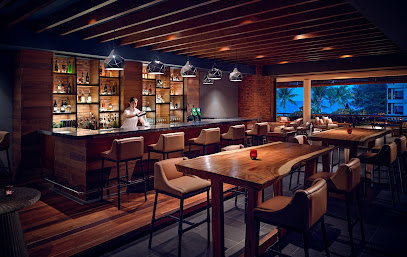
Kara Lounge
Discover the vibrant Kara Lounge in Kuantan, where a lively atmosphere, diverse drinks, and live entertainment await to enhance your night out.
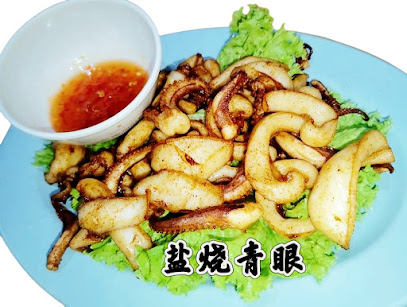
SS BLACK OR WHITE Kuantan
Experience the vibrant nightlife at SS BLACK OR WHITE Kuantan, where great drinks and lively atmosphere come together for unforgettable nights.
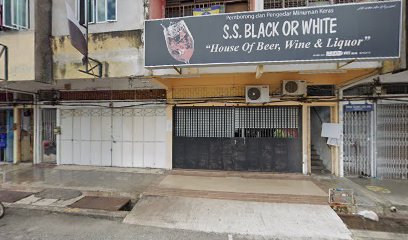
De Jazz Bistro
Experience the vibrant nightlife at De Jazz Bistro in Kuantan, where live music and great drinks meet in a relaxed, welcoming atmosphere.
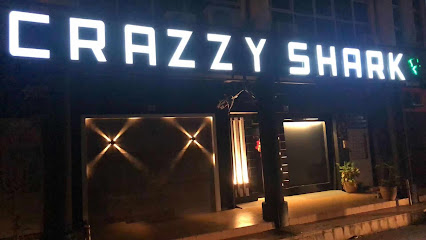
The 9th
Discover a vibrant nightlife at The 9th in Kuantan, a stylish bar offering a diverse drink selection and a lively atmosphere for socializing.
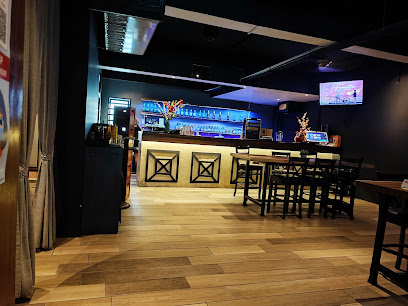
Jiuba Cuisine
Discover Jiuba Cuisine in Kuantan - a lively bar offering refreshing drinks and a perfect ambiance for relaxation and socializing.
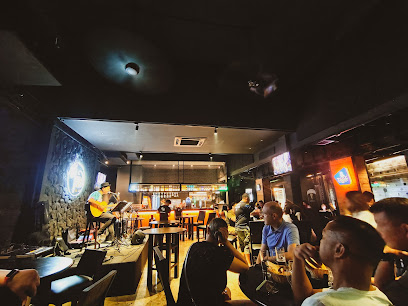
UB LOUNGE
Experience the lively nightlife of Kuantan at UB Lounge, where delicious drinks and a vibrant atmosphere await every visitor.
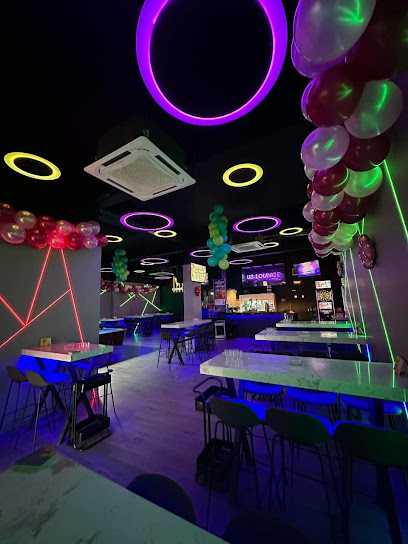
Galaxy Club
Discover the vibrant nightlife of Kuantan at Galaxy Club, where energetic music and refreshing cocktails create unforgettable moments.
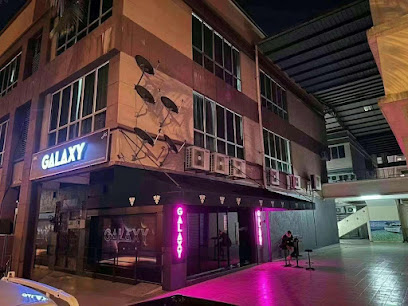
Local Phrases
-
- HelloApa khabar
[ah-pah kah-bahr] - GoodbyeSelamat tinggal
[suh-lah-maht ting-gahl] - YesYa
[yah] - NoTidak
[tee-dahk] - Please/You're welcomeSila
[see-lah] - Thank youTerima kasih
[teh-ree-mah kah-seh] - Excuse me/SorryMaaf
[mah-ahf] - How are you?Apa khabar?
[ah-pah kah-bahr] - Fine. And you?Baik. Dan awak?
[bah-ee-k. dahn ah-wahk] - Do you speak English?Boleh cakap Bahasa Inggeris?
[boh-leh chah-kahp bah-hah-sah eeng-geh-rees] - I don't understandSaya tidak faham
[sah-yah tee-dahk fah-hahm]
- HelloApa khabar
-
- I'd like to see the menu, pleaseBoleh saya lihat menu?
[boh-leh sah-yah lee-haht meh-noo] - I don't eat meatSaya tidak makan daging
[sah-yah tee-dahk mah-kahn dah-yihng] - Cheers!Sihat!
[see-haht] - I would like to pay, pleaseBoleh saya bayar?
[boh-leh sah-yah bah-yahr]
- I'd like to see the menu, pleaseBoleh saya lihat menu?
-
- Help!Tolong!
[toh-lohng] - Go away!Pergi jauh!
[pehr-gee jah-oo] - Call the Police!Panggil polis!
[pahng-geel poh-lees] - Call a doctor!Panggil doktor!
[pahng-geel dohk-tohr] - I'm lostSaya sesat
[sah-yah suh-saht] - I'm illSaya sakit
[sah-yah sah-keet]
- Help!Tolong!
-
- I'd like to buy...Saya nak beli...
[sah-yah nahk beh-lee] - I'm just lookingSaya cuma tengok
[sah-yah choo-mah tehng-ohk] - How much is it?Berapa harganya?
[beh-rah-pah har-gahn-yah] - That's too expensiveItu terlalu mahal
[ee-too teh-rah-lah mah-hahl] - Can you lower the price?Boleh kurangkan harga?
[boh-leh koo-rahn-gahn har-gah]
- I'd like to buy...Saya nak beli...
-
- What time is it?Pukul berapa sekarang?
[poo-kool beh-rah-pah suh-kah-rahn] - It's one o'clockPukul satu
[poo-kool sah-too] - Half past (10)Pukul setengah (sepuluh)
[poo-kool suh-teng-ah (seh-poo-loo)] - MorningPagi
[pah-gee] - AfternoonPetang
[peh-tahng] - EveningMalam
[mah-lahm] - YesterdaySemalam
[suh-mah-lahm] - TodayHari ini
[hah-ree ee-nee] - TomorrowEsok
[eh-sohk] - 1Satu
[sah-too] - 2Dua
[doo-ah] - 3Tiga
[tee-gah] - 4Empat
[em-paht] - 5Lima
[lee-mah] - 6Enam
[eh-nahm] - 7Tujuh
[too-joo] - 8Lapan
[lah-pahn] - 9Sembilan
[suhm-bee-lahn] - 10Sepuluh
[seh-poo-loo]
- What time is it?Pukul berapa sekarang?
-
- Where's a/the...?Di mana...
[dee mah-nah] - What's the address?Apa alamatnya?
[ah-pah ah-lah-maht-nyah] - Can you show me (on the map)?Boleh tunjukkan kepada saya (di peta)?
[boh-leh toon-jook-kahn keh-pah sah-yah (dee peh-tah)] - When's the next (bus)?Bila bas seterusnya?
[bee-lah bahs suh-tuh-roos-nyah] - A ticket (to ....)Satu tiket (ke ....)
[sah-too tee-keht (keh ....)]
- Where's a/the...?Di mana...
History of Kuantan
-
The history of Kuantan dates back to its early settlement by the indigenous Orang Asli tribes. These native peoples lived in harmony with nature, relying on the rich resources of the surrounding forests and rivers. The area that is now Kuantan was a vibrant hub of indigenous culture long before the arrival of foreign influences.
-
During the 15th century, the region became part of the Melaka Sultanate, one of the most powerful and influential Malay kingdoms. The strategic location of Kuantan along the coast made it an important point for trade and commerce. This period saw the rise of traditional Malay culture, language, and Islamic influence, which continues to shape Kuantan's cultural landscape today.
-
The 19th century marked the beginning of British colonial influence in Kuantan. The discovery of tin and the establishment of rubber plantations attracted a significant influx of Chinese and Indian laborers. This era of economic transformation brought about rapid urbanization and infrastructural development, laying the groundwork for Kuantan's modern identity.
-
From 1942 to 1945, Kuantan, like much of Malaysia, was under Japanese occupation. This period was marked by hardship and resistance. The Japanese forces utilized Kuantan's strategic location for military operations, significantly impacting the local population. The end of the occupation in 1945 paved the way for the eventual push towards Malaysian independence.
-
Following Malaysia's independence in 1957, Kuantan experienced significant growth and modernization. The establishment of government institutions and the development of infrastructure, such as the expansion of the port and the construction of highways, positioned Kuantan as a key economic hub in the east coast of Peninsular Malaysia. This era also saw the blending of various cultural influences, creating the diverse and vibrant community that exists today.
-
In recent decades, Kuantan has become an increasingly popular destination for tourists. Its stunning beaches, such as Teluk Cempedak and Cherating, along with attractions like the Sultan Ahmad Shah State Mosque and the vibrant local markets, draw visitors from around the globe. The city's commitment to preserving its natural beauty and cultural heritage while embracing modern amenities has made Kuantan a unique and attractive locale for travelers.
Kuantan Essentials
-
Kuantan, the capital city of Pahang, Malaysia, is accessible by various means of transportation. The nearest airport is Sultan Haji Ahmad Shah Airport (KUA), located about 15 km from the city center. Direct flights to Kuantan are available from Kuala Lumpur and Singapore. Alternatively, you can take a bus from major Malaysian cities like Kuala Lumpur, Johor Bahru, or Penang. The journey from Kuala Lumpur takes approximately 3-4 hours by road. Additionally, driving is an option; the East Coast Expressway (ECE) connects Kuantan to major cities in Malaysia.
-
Kuantan offers several modes of local transportation. Taxis and ride-hailing services like Grab are widely available and convenient for getting around the city. Local buses, operated by RapidKuantan, cover most areas within Kuantan and are an economical choice. Renting a car is also an option for exploring nearby attractions at your own pace. For short distances, walking or cycling can be enjoyable, especially along the scenic waterfront and city parks.
-
The official currency in Malaysia is the Malaysian Ringgit (MYR). Credit cards are widely accepted in hotels, restaurants, and shopping centers. However, it is advisable to carry some cash for smaller establishments, local markets, and street vendors. ATMs are plentiful in Kuantan, and you can easily withdraw cash using international debit or credit cards. Currency exchange services are available at the airport, major banks, and money changers in the city.
-
Kuantan is generally a safe destination for tourists. However, as with any travel destination, it is important to take standard precautions. Avoid walking alone at night in unfamiliar areas and keep an eye on your belongings in crowded places. While Kuantan does not have specific high-crime areas targeting tourists, it is best to stay vigilant, especially in busy markets and tourist hotspots. Areas like Taman Tas and Indera Mahkota have relatively higher crime rates, so exercise caution if visiting these neighborhoods.
-
In case of emergency, dial 999 for immediate assistance, which connects you to police, ambulance, and fire services. The main public hospital in Kuantan is Tengku Ampuan Afzan Hospital, which offers comprehensive medical services. Private clinics and pharmacies are also widely available for minor health issues. It is highly recommended to have travel insurance that covers medical emergencies. For lost belongings or other non-medical emergencies, the nearest police station can provide assistance.
-
Fashion: Do dress modestly, particularly when visiting religious sites. Avoid wearing overly revealing clothing. Religion: Do respect local customs and traditions. When visiting mosques, ensure your attire covers your arms and legs, and women should wear a headscarf. Public Transport: Do be courteous and give up your seat to elderly passengers. Avoid eating or drinking on public transport. Greetings: Do greet people with a smile and a slight nod; a handshake is also common. Eating & Drinking: Do try local delicacies and accept food offerings graciously. Don't eat with your left hand, as it is considered impolite.
-
To experience Kuantan like a local, visit the local markets such as Pasar Besar Kuantan, where you can buy fresh produce and traditional Malay snacks. Engage with locals, who are often friendly and willing to share stories about the city's history and culture. Don't miss exploring Teluk Cempedak Beach, a popular spot for locals and tourists alike. For a unique experience, take a river cruise along the Kuantan River, offering picturesque views and a chance to see local wildlife.
Trending Landmark in Kuantan
-
Swiss-Garden Beach Resort Kuantan
-
Taman Gelora Kuantan
-
East Coast Mall
-
Masjid Negeri Pahang (Sultan Ahmad 1) Kuantan
-
Dataran Teluk Cempedak Kuantan
-
Menara Kuantan 188
-
Pantai Batu Hitam
-
Zoo Teruntum
-
Esplanade Kuantan
-
Cendol Air Putih
-
Lila Wadi Restaurant
-
Taman Bandar Kuantan
-
Sungai Pandan Waterfall
-
Teluk Cempedak
-
Restoran Hoi Yin
Nearby Cities to Kuantan
-
Things To Do in Kuala Terengganu
-
Things To Do in Kuala Lumpur
-
Things To Do in Malacca
-
Things To Do in Cameron Highlands
-
Things To Do in Johor Bahru
-
Things To Do in Ipoh
-
Things To Do in Sembawang
-
Things To Do in Yishun
-
Things To Do in Jurong
-
Things To Do in Singapore
-
Things To Do in Bukit Timah
-
Things To Do in Tampines
-
Things To Do in Kota Bharu
-
Things To Do in Orchard Road
-
Things To Do in Little India












